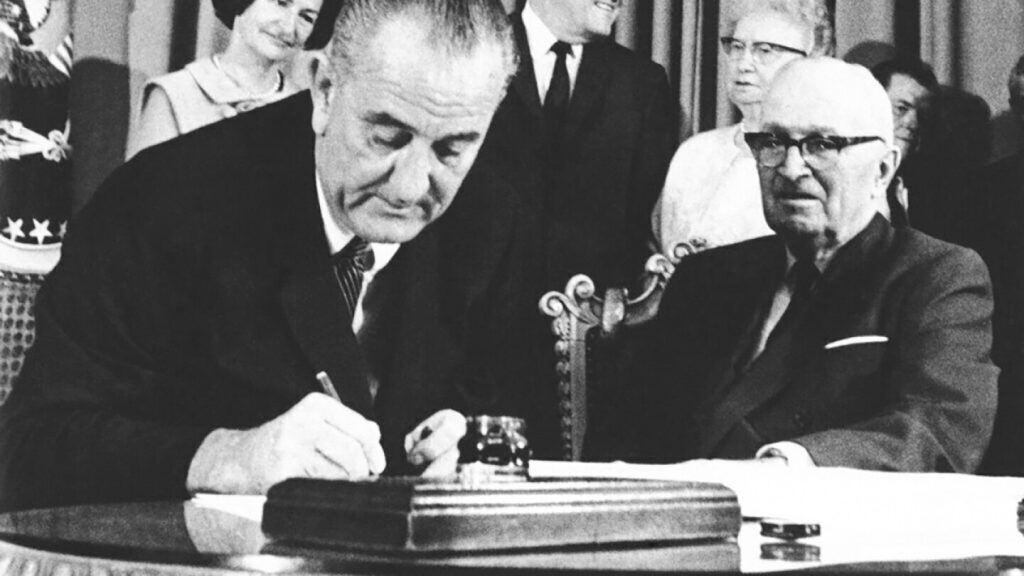The Supreme Court is currently considering the Idaho abortion case, which raises questions about federal spending power and how it could protect doctors from a state’s criminal code. Justices Alito, Thomas, and Gorsuch have questioned whether the Biden administration has the authority to pull Medicare funding from hospitals whose doctors refuse to perform emergency abortions due to fear of prosecution under Idaho law. In response, Solicitor General Elizabeth Prelogar argued that Idaho wants to accept Medicare funding without adhering to federal conditions like providing emergency abortion care in certain cases.
The use of federal funding to influence state policies is not a new concept and dates back to the beginnings of Medicare in the 1960s. President Lyndon B. Johnson used the promise of federal funding to desegregate hospitals in the Jim Crow South, highlighting the power of federal spending as a tool for driving social change. This approach has been used in various areas, including healthcare and education, to ensure compliance with federal standards and regulations.
Before the implementation of Medicare, hospitals in the South were still adhering to racial discrimination practices, despite federal laws and court rulings against segregation. Black doctors were denied privileges, patients faced segregation in ambulances and wards, and emergency rooms were reserved for white patients only. The rollout of Medicare played a crucial role in ending these discriminatory practices by tying federal funding to desegregation requirements, leading to widespread compliance among hospitals nationwide.
The pressure for change in the healthcare system, fueled by grassroots activism and federal intervention, eventually led to the desegregation of hospitals across the country. Johnson’s administration actively engaged with Black doctors and activists to push for desegregation, resulting in significant progress in hospital compliance with federal standards. By leveraging federal spending power, the government was able to ensure that hospitals met antidiscrimination practices and provided equal access to healthcare for all patients.
The principle of using federal funding as leverage to enforce policy goals has been extended to various areas beyond healthcare, such as education and transportation. States have been incentivized to comply with federal regulations by linking funding to specific conditions, ensuring that federal policies are implemented at the state level. While challenges to federal spending power have arisen in the past, such as in the Affordable Care Act ruling, the use of funding leverage remains a powerful tool for driving social change and advancing policy objectives.
Overall, the Idaho abortion case highlights the complex interplay between federal spending power, state criminal codes, and healthcare policy. By examining historical precedents, such as the role of Medicare in desegregating hospitals, the Supreme Court can gain insights into how federal funding can be used to influence state actions and drive compliance with federal standards. The outcome of this case could have implications for the balance of power between federal and state governments in shaping healthcare policy and addressing social issues.


